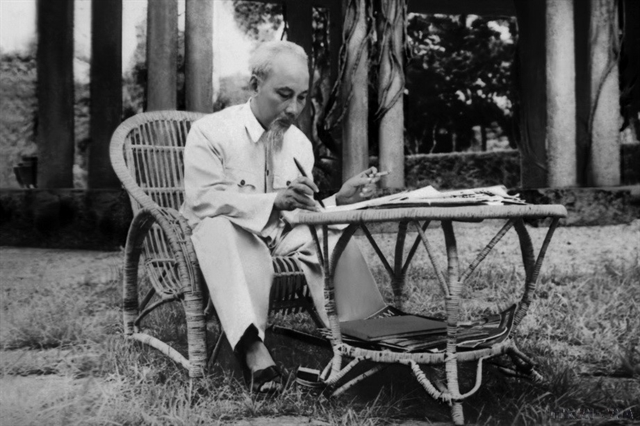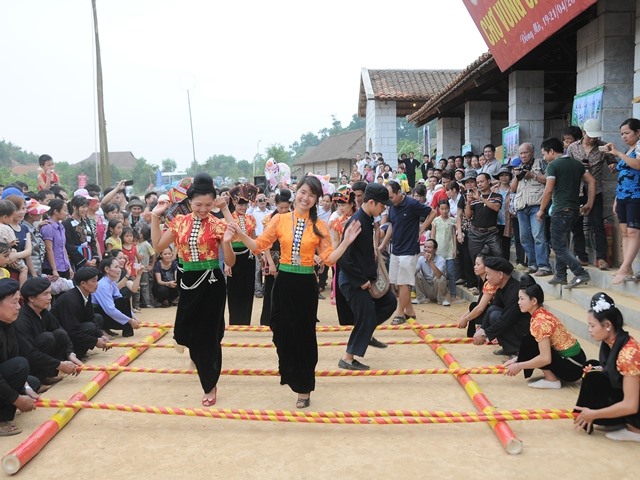 Life & Style
Life & Style

The cultural diversity of ethnic groups in the northwestern
 |
| Traditional: Ethnic people perform bamboo dancing at the Việt Nam National Village for Ethnic Culture and Tourism in Sơn Tây town. — Photo courtesy of the village |
HÀ NỘI — The cultural diversity of ethnic groups in the northwestern
A wide range of cultural activities will take place from April 28 to May 1 featuring the cultural traditions of ethnic groups residing in Sơn La Province such as the khèn (panpipes) festival of the Mông, the art of making piêu (embroidered scarves) of the Thái and Xên Cung festival of the Khơ Mú.
Xên Cung is the important festival due to its scale and spiritual meaning in the Khơ Mú community. It preserves the unique traditional culture of the Khơ Mú, in which they perform rituals to pay gratitude to the ancestors and organise games to strengthen solidarity in their community.
Piêu, the traditional scarf of Thái women, is not only a kind of accessory but also a cultural symbol of the Thái people. Each scarf tells a story about the wearers’ feelings and character through patterns and colours.
No matter how the life of the Thái has changed, the traditional art of weaving piêu is still preserved, reflecting the aesthetic sense of Thái women.
The scarf’s patterns feature animals such as deer, butterfly, bird, elephant and tiger, the moon, and trees such as fern. These same patterns are also seen on the hems of Thái costumes.
Researcher Lương Văn Thiết from the Việt Nam Museum of Ethnology said the skill of making piêu reflects the woman’s talent and character. Thái men seek partners based on their ability to decorate and embroider piêu.
Traditional markets in the mountainous region will be recreated during these days as a highlight of the festival. The markets are an important cultural practice of the ethnic groups, according to Lâm Văn Khang, head of the management board of the village.
“It’s a place for people to exchange goods and perform cultural activities. It’s also a rendezvous for young men and women to date and get acquainted,” he said.
Accordingly, traditional foods and products of Mông, Dao, Thái, Mường, Khơ Mú and Tày will be introduced together with folk games and artistic performances. The ethnic people will perform their skills in making traditional handicraft. Sơn La Province is the home of 12 ethnic groups including Thái, Kinh, Mông, Mường, Dao, Khơ Mú, Xinh Mun, Nùng, La Ha, Hà Nhì, Tày and Hoa. Of these, the Thái are the largest community in Sơn La accounting for 54 per cent of the population. — VNS




